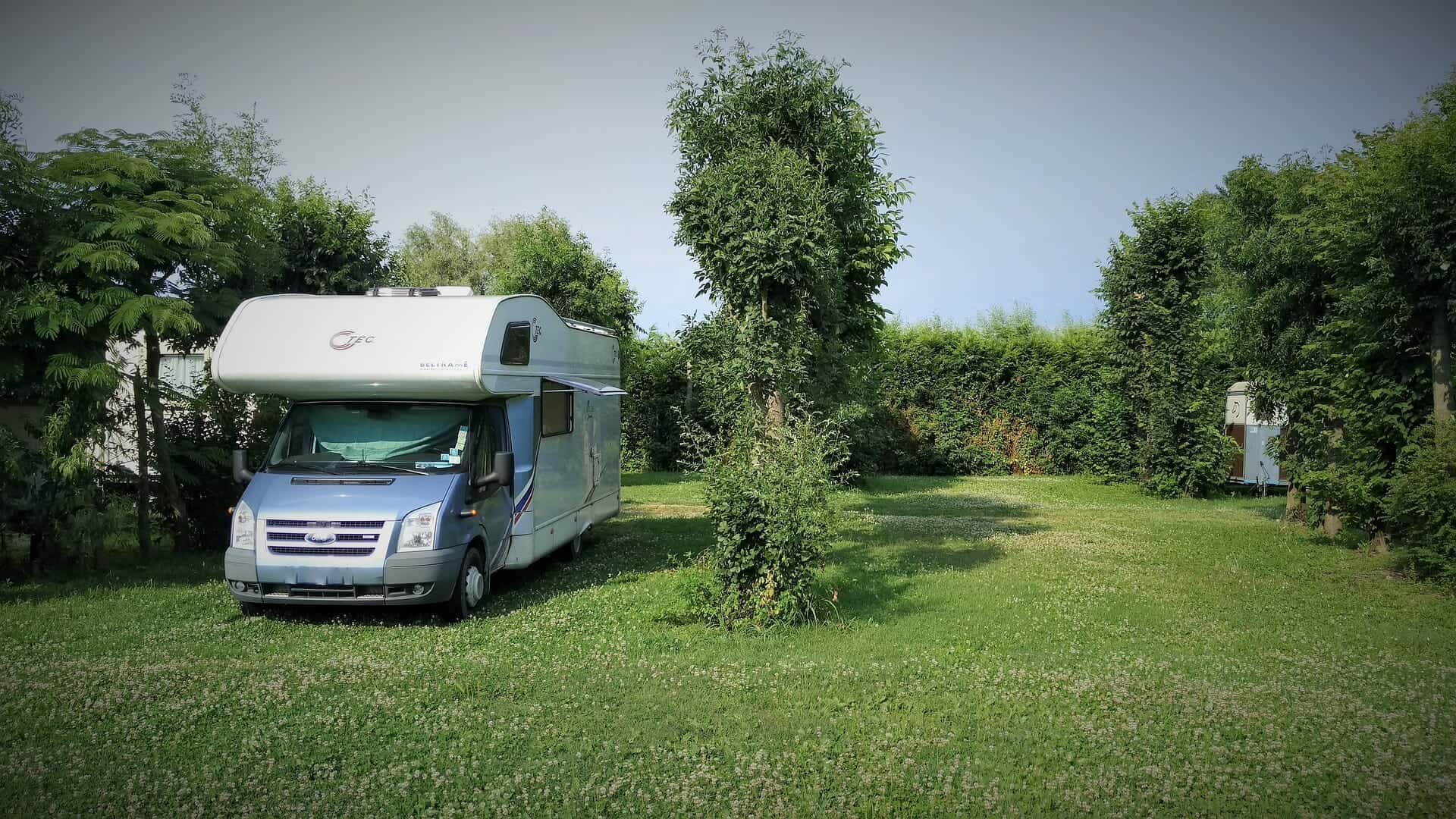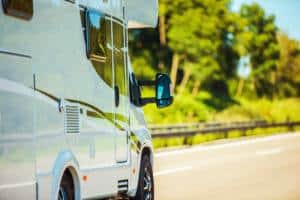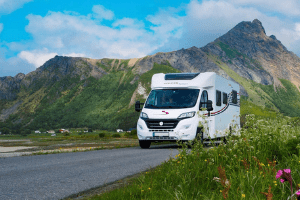Buying a motorhome can be one of the most fulfilling and liberating purchases you’ll ever make – giving you the opportunity to make the most of your weekends and holidays to visit parts of the country you may never have previously considered, or even use that added freedom to explore the continent.
But before taking the plunge and buying a motorhome, it’s vital you get the vehicle that’s exactly right for both your needs and budget – get it wrong and it can quickly become a very expensive mistake. So, before you buy, ask yourself the following questions:
- Why buy a motorhome? – There can be any number of reasons why people feel the time is right to buy a motorhome, but it usually comes down to personal circumstances and reaching a stage in life where it’s time to try something new. This is why motorhomes are becoming increasingly popular among both older couples and young families – although both are at completely different stages of life, both appreciate the convenience and freedom of being able to pack everything up and get away from it all. When you own a motorhome, the journey is part of the holiday, so if you like to take life at your own pace and enjoy the freedom of being able to go wherever you want, whenever you want, a motorhome could be the perfect fit for your lifestyle.
- Should I buy a motorhome? – Once you’ve decided to buy a motorhome, you need to consider all the available options, including the idea that a campervan might actually be a better fit. Campervans are essentially converted vans that have been fitted with basic cooking, washing and sleeping areas. Motorhomes, on the other hand, are usually purpose built recreational vehicles built on a truck or bus chassis, with self-contained living, sleeping and cooking facilities, often along with a bathroom. Campervans are generally smaller, so might be a better option if you’re a couple or small family that doesn’t need as much living space, or if you have limited parking space at home.
- Who are you buying a motorhome for? – If you’ve always dreamed of packing up a motorhome and hitting the open road, you need to make sure everyone else who’s travelling with you shares the same aspiration, or at least tailor what you buy to suit their needs too. While a campervan may suit you down to the ground, your partner or family might need the added space and facilities offered by a motorhome, so always think about who’ll be travelling with you and consider what they want before taking the plunge.
- Are you buying a motorhome for the first time? – If you’re a seasoned motorhome traveller, you’ll most likely be well aware of the benefits and risks of buying certain types of van – you may even have made your own costly mistakes in the past. But if you’re buying a motorhome for the first time, do plenty of research before you buy and weigh up all the pros and cons to make sure you get the vehicle that’s exactly right for your needs and budget.
- Do you plan to travel with the motorhome? – The type of journeys and the amount of travelling you plan on doing in your motorhome can have a huge bearing on the type of model you need. If, for instance, you plan on using your motorhome for the occasional weekend break in the UK, you should be able to get away with buying an older and cheaper model than if you’re planning on taking a couple of long-haul trips to the continent every year. If you’re travelling abroad, you should also bear in mind that ferry companies can charge by vehicle length and you’ll need additional breakdown cover, in case something goes wrong while overseas.
- Do you prefer to tow a caravan or drive a motorhome? – When doing your research, you may actually find that a caravan is a better option than a motorhome, particularly if you already have a vehicle powerful enough to tow a caravan. Depending upon the size of the caravan you choose, you can still have all the amenities of a motorhome and also have the added convenience of being able to unburden yourself from it and have the freedom of travelling around your chosen destination in your car. This can be a great option if you plan on driving into towns and cities as part of your holiday. You should also consider a caravan if you have limited parking space at home.
Once you have the answers to all these questions, you’ll have a better idea of exactly the type of motorhome you need, or whether a campervan or caravan would suit you better. It’s now time to get your teeth into some research.
What type of motorhome do I need?
If you’ve decided to take the plunge and buy a motorhome, the next thing to do is work out exactly what type of motorhome best suits your needs and budget, bearing in mind you may need a different type of driving licence to drive certain types of motorhome.
Broadly speaking, there are five options available, including campervans if you think that might suit your circumstances better:
- Micro motorhomes – Usually based upon small van versions of popular cars or people carriers, micro motorhomes will sleep two people at most, and have enough room for very rudimentary cooking and storage facilities, alongside a portable toilet. This type of motorhome usually comes with a lifting roof, but some fixed high-top versions are available.
- Campervans – Campervans are a very popular option as they have enough room for reasonable cooking, sleeping and storage facilities, but are still small enough to be used as a family car. Elevating and fixed-roof versions are available, as are classic and contemporary models. If you fancy a classic VW camper van, bear in mind that although they look great, they are very old vehicles and generally don’t offer the comfort and driving experience of newer models.
- Large van conversions – Larger van conversions sit somewhere between a campervan and a motorhome. Converted panel vans offer more headroom and have enough space for more impressive and practical sleeping and kitchen facilities. There may even be enough room to house basic washing facilities too.
- Coach built motorhomes – Also known as ‘Class C’ motorhomes, these are built on the cab and chassis from a major van manufacturer and can usually sleep two or more, with enough room for a kitchen and washroom with shower and cassette toilet. Some models come with a fixed double bed, which is sometimes mounted towards the back of the motorhome with a locker underneath for extra storage. If you need an extra sleeping room, versions are available with an additional bed in a space above the cab. This space can also be used for storage if you don’t need extra sleeping quarters. Longer wheelbase, ‘tag-axle’ versions are also available, which have a third wheel fitted on either side.
- Class A motorhome – While coach built motorhomes have a separate cab upfront, this type of motorhome is completely coachbuilt using a bare chassis unit from one of the large commercial vehicle manufacturers. Bigger than Class C motorhomes, these motorhomes have enough space inside to make this a real home-from-home. Again, longer wheelbase, ‘tag-axle’ versions are also available, with a third wheel fitted on either side.
Other options include an American-style RV, which can be as big as a coach and often petrol-fuelled, meaning they return single-figure miles per gallon figures – not the most economical and not the easiest to manoeuvre around the smaller roads found in the UK and Europe. Or you could opt for a caravan instead, which can offer the same amenities as a campervan, but can be left of the campsite while you use your car to travel around.
Should I buy a Class A or Class C motorhome?
Class A motorhomes are often considered to be top-of-the-range, offering more living room, better amenities and improved insulation. But this higher spec means they sit at the luxury end of the market and, as a result, can be prohibitively expensive. They are also usually much heavier, which means you may need a category C1 licence to drive one.
Most Class A motorhomes will have a maximum authorised mass (MAM), which is its weight plus the maximum load it can carry, of more than 3.5 tonnes. In order to be able to legally drive a motorhome which has a MAM of between 3.5 and 7.5 tonnes, you need a category C1 licence. If you passed your driving test before January 1 1997, your licence should include this category of vehicle. If not, you won’t be able to drive a motorhome that exceeds 3.5 tonnes.
If the motorhome you’re after exceeds the 7.5 tonne limit, say you have your eye on a US-style RV, you’ll need a category C (HGV) licence.
The good news is that there are a growing number of more affordable and lighter versions entering the market, which can be driven on a standard driving licence, so your decision should ultimately come down to a combination of three factors:
- What you need from a motorhome – if you only need the space and amenities offered by a Class C motorhome, there’s little point in paying more for a Class A motorhome, unless the prestige is important to you.
- The amount of money you can spend on a motorhome – although it can be tempting to upgrade to a Class A motorhome, you should never stretch your budget too much, or buy a motorhome that you can’t afford to run. Remember, along with the purchase price, you need to factor in servicing and MOT costs, alongside insurance and fuel.
- How much storage space you have at home – there’s no point buying a huge Class A motorhome if you have no room to store it when not in use.
The size of motorhome you buy will also impact the price you pay when travelling to Europe, as most ferry and train operators charge by the length of the vehicle. This, coupled with the fact that smaller motorhomes are easier to park, has seen a recent trend in people downsizing and opting against Class A motorhomes or even choosing to buy a campervan instead.
Even so, it’s likely that the choice you make within your price range will depend on the size, weight, space and layout you want.
Should I buy a diesel motorhome?
Before buying, you’ll also need to consider the type of fuel your motorhome runs on – although diesel faces an uncertain future in the UK, largely because it’s not as eco-friendly as was believed a decade or so ago, it is still probably the most cost-effective fuel type for long journeys, particularly when driving a heavier vehicle.
When considering fuel efficiency, you can expect to get anywhere between 20mpg and 35mpg. But bear in mind that the age, make and model will all have a bearing on the number of miles it covers per gallon, as will the types of road you drive on and your own driving style – the harder you accelerate and brake, the more fuel you’ll use.
If you do decide to go with a diesel, you need to be mindful of the type of diesel motorhome you buy. Those with engines built before the Euro 4 standard was introduced in 2005 are considered to be the most harmful to the environment and may not be allowed to enter areas that enforce low-emissions zones.
If possible, it’s definitely worth buying a newer diesel engine that complies with the new European Commission standards including 2009’s Euro 5 and 2015’s Euro 6. These models are fitted with particulate filters and Euro 6 engines use emissions control technology to convert up to 99% of combustion engine exhaust pollutants and particulates, which means they’ll even be able to enter London’s ultra-low emission zone without incurring a charge.
What to look for when buying a motorhome
Buying a motorhome isn’t like buying a car or even a van, and there are a lot more parts and components you have to consider. For instance, while it may be mechanically sound, if the fixtures and fittings aren’t in good condition, it could cost you a small fortune to make it fully functional.
Here are some things to look out for when buying a motorhome.
Can your motorhome carry passengers?
All passengers in a motorhome must travel in seats with proper seat belts, but many motorhomes only have seat belts for passengers who travel in the cabin. If you’ll be travelling with any additional passengers, you’ll need to buy a motorhome fitted with enough seat belts for everyone, or have them installed before you hit the road.
Should I buy a right or left-hand drive?
If you’ll be doing most of your driving on the continent, it might make sense to buy a left-hand drive motorhome, to make travelling on the right feel more natural and make life easier when it comes to paying on toll roads.
If you’ll not be driving in Europe, you should buy a right-hand drive model, but be aware that some continental brands will only modify the cabin for UK users, meaning the entrance door to the habitation area of the motorhome may still be on the ‘wrong’ side. If buying from a continental brand, you should also make sure it comes with all the fixtures and fittings you need, as many don’t include a grill or an oven.
Is the motorhome damp?
Dampness isn’t something you usually need to consider when buying a vehicle, but it can be a real problem for coach-built motorhomes, and one that can be really expensive to repair. When motorhomes are exposed to hot sunlight and cold frosts, the bodywork can flex and lose some of its integrity, making it less watertight and susceptible to damp, especially around the front windows, rooflights, TV aerials, and the front and rear corners.
You should always get a professional to check for damp or use a damp-meter if you’ll be giving it the once over yourself.
Is the motorhome too big for you to store at home?
Storing your motorhome in a garage can help protect it from the elements, which should cut down on maintenance costs and help maintain its value.
If you don’t have a big enough garage, but you do have room on your driveway, then building a lean-to can also offer good protection against the elements. If this is an option, you should check the deeds on your property before you buy, as there may be restrictions on what you can build, or even if you can keep a vehicle that big on the driveway.
If you’ve no room at home, you could use a local storage site. Always check with the site’s owner to find out what security measures it has in place and, if possible, choose a site that is CaSSOA (the Caravan Storage Site Owners’ Association) registered.
Wherever you store your motorhome, you should check it regularly as any storm damage or obvious leaks will need to be reported or actioned upon immediately.
Has the motorhome been properly maintained and regularly serviced?
Although many motorhomes do below average mileage compared to other types of vehicles, they often cover a high number of miles in relatively short bursts and still need to be regularly serviced and maintained, even if they are parked up for large parts of the year.
Before you buy a motorhome, always check the vehicle’s history, to make sure it’s been looked after and is in the condition you’d expect it to be for the price you’re paying. Annual servicing should also include the habitation part of the motorhome, covering gas pipes, electrics, and heating as well as flagging any signs of damp.
You also need to pay attention to the tyres – even if they still have a good tread depth, they may still need changing if they’re over a few years old. Although the amount of travelling the motorhome has done may not have much of an impact on the tread, years of taking the weight of the vehicle and being exposed to the elements can cause the side walls to crack, which can lead to a blow-out. Ideally, motorhome tyres should be changed at least every four or five years.
While you’re checking the motorhome’s history, you should also check whether the seller has any receipts from buying and servicing it, to make sure it’s not been stolen. You should also check the vehicle itself for any signs that the door and window locks have been tampered with and that the VIN (Vehicle Identification Number) matches the one on the V5 registration document. It’s also worth running an HPI check before handing over any cash, to make sure the seller doesn’t owe any outstanding finance.
Have any extra security devices been fitted?
Unfortunately, motorhomes are very desirable to thieves – even if the crooks don’t want to take the entire vehicle, the fixtures and fittings might still be of interest. This is why its imperative that your motorhome is secure. If the motorhome you’re looking to buy has any extra security features outside of those that were fitted as standard, this can both help to deter criminals and even bring down the cost of your insurance.
Additional security devices that may have been fitted include things like locking wheel nuts, window and door locks, tracking devices, CCTV and alarm systems.
How to buy a motorhome
Motorhomes generally don’t come cheaply, and you can reasonably expect to pay anything north of £40,000 for a brand new, coach built motorhome, depending upon the size and spec. If you’re in the market for a second-hand motorhome, you may well be able to get a decent model for between £10,000 and £15,000.
Is buying a motorhome a good investment?
If you’re looking to buy a motorhome as an investment, the good news is that motorhomes generally hold their value relatively well, but the amount it depreciates will depend largely upon the make and model, the miles it’s covered, as well as the condition it’s in when you come to sell it. Making sure you properly service your motorhome and stick to a regular maintenance schedule will help maintain its value, but bear in mind that you’ll instantly lose any VAT you paid on the motorhome if you bought it brand new.
Should I buy a new or used motorhome?
Buying a brand new motorhome gives you the peace of mind that everything is in perfect working order. If anything is defective, it will be replaced or repaired so long as the motorhome and its fixtures and fittings are still under warranty. But buying used means you could possibly save thousands of pounds on the original list price, while still bagging yourself a reliable motorhome.
Before making your decision, it’s worth taking a look at the pros and cons of buying new and used and consider what to look for when buying a used motorhome.
What are the pros of buying a brand new motorhome?
- You get a brand new vehicle that has never been used by anyone else.
- You’ll be covered by a full manufacturer’s warranty.
- You don’t have to worry about damage, wear, and tear or any related issues when driving off the forecourt for the first time.
- You can get the exact model and specification you want, complete with any custom colour, finish or layout options.
- Servicing and maintenance costs can be lower.
What are the cons of buying a brand new motorhome?
- The purchase price is expensive, depending on the features you want.
- Depreciation of motorhomes when new means you’ll instantly lose the amount you paid in VAT.
- The customisations you want may not be available through the manufacturer, which means getting the spec you want can be even more expensive.
- It might cost more to insure.
What are the pros of buying a used motorhome?
- You can save a significant amount of money, even if the used model is only a few months old.
- You have the option to rebuild, redecorate and restore it to your own specification.
- It could be the only option if you want a classic motorhome.
- Insurance might be cheaper as second-hand motorhomes are usually less valuable.
- Depreciation of motorhomes is slower on used models than new ones.
What are the cons of buying a used motorhome?
- You might not find out about any underlying problems until it’s too late.
- You may not get the bargain you thought if you’re unaware of how much it has actually depreciated in value
- It’s likely that the manufacturer’s warranty will have run out.
- It will cost more to service and maintain.
The ultimate decision on whether to buy new or used is all down to your personal circumstances and budget, but it’s always worth considering buying used, even if you have the money to buy brand new.
Whether you buy new or used, buying the motorhome itself is only part of the outlay, and you’ll need to factor in the following additional expenses and running costs:
- Insurance, including gap coverage
- Vehicle excise duty (VED, also known as road tax)
- Maintenance and repair costs
- Fuel
- Gas bottles
- Mobile internet
- Site fees
How to finance a motorhome
Buying a motorhome usually involves a big initial outlay, even when buying used, which means there will be a number of financing options available to you if you don’t have the funds to pay cash.
- Personal loan – You may be able to get a loan from your bank or another lender, but the amount you can borrow and the interest rate you get will largely depend upon your credit score – anything less than excellent and you may not be eligible for the amount you need, or you may get hit by eye-watering interest rates. If you are a homeowner, you might be able to get a better rate or borrow more by taking out a secured loan and putting your house up as a guarantee. If you choose this option, your home can be at risk if you don’t keep up with your repayments.
- Hire purchase – An alternative to taking out a personal loan, hire purchase (HP) works a lot like a mortgage in that you don’t actually own the vehicle until the final payment has been made. Again, your eligibility and the interest rate you’re offered will depend upon your credit rating, but you can expect to pay interest between 10% and 20%, over a period of between five and seven years. If you default on an instalment though, the finance company is within its rights to repossess the motorhome. You may also have to pay an initial deposit and a final balloon payment.
- Equity release – If you’re an older homeowner, downsizing to release any equity in your home or taking out and an equity release mortgage is also an option. Downsizing means moving to a smaller property, which might be appealing if your children have left the family home. Alternatively, an equity release mortgage is essentially a lifetime mortgage that is secured against your property. There are no repayments and the amount plus interest is only paid back when the scheme ends through the sale of the property or the death of the policyholder.
Whichever option you choose, it’s essential you buy within your budget and can keep up with the repayments on any finance deal you take out. Essentially, you can finance a motorhome for as long as your creditor will allow you, but you can expect finance deals and loans to be up to five years, secured loans up to 15 years, and equity release is indefinite.
How to get the best price on a motorhome
There will be very little wriggle-room on price when buying a brand new motorhome, but whether you’re buying new or used, the best way to ensure you get a good deal is to do a bit of research to see what the going rate is for the type of vehicle you’re after.
If the dealership has priced your motorhome way over the recommended list price, find out what comparable models are selling for elsewhere means you’ll have a figure you can use to talk them down. You might also be able to knock money off by paying cash, so should consider the personal loan options available to you before agreeing on a finance package from the dealership. You might also be able to get a better price by arranging your own finance package instead of going through the dealer you’re buying from.
When buying new, you might also be able to get the price down by buying a pre-registered motorhome, as it’s likely the dealer will be keen to get it sold. You may even be able to talk them down further if the motorhome on offer isn’t the exact spec you want.
When buying used, you should offer a lower starting price than the one you’re willing to pay and work up towards the seller’s price from there. You should also give the motorhome a thorough check to pick out any defects that might drive the price down further.
Being open-minded and prepared to walk away and look elsewhere is the key to getting the best price. There’s also room to trust (but not completely rely on) your instincts – if something seems too good to be true, then it usually is.
The timing of your purchase can also play a part in the price you pay.
When is the best time to buy a motorhome?
The best time to buy a motorhome is when the fewest people are in the market to buy, which means the depths of winter could be a good option as no-one in their right mind is thinking of a motorhome or camping trip when freezing rain and snow is battering the country.
It’s also a good idea to buy around new registration time, which is in March and September in the UK. This is because many dealers will have pre-registered models they want to get off their forecourt. You may also be to get a bigger discount on a pre-registered model if it doesn’t have the trim or floor plan you want. Again, it pays to be open-minded.
How to get the right motorhome insurance at the right price
Whether you’re buying a brand new motorhome or looking for a used model, you need to make sure it’s fully insured whether it’s on the road, on the campsite, or on the driveway. You’ll also need to make sure you’re fully covered when driving in the UK and Europe.
To find the right policy to suit your needs, give our motorhome insurance experts a call on 0208 9840 666 – our unrivalled choice of policies is what helps 95% of our customers rate our service as ‘Excellent’ on Trustpilot with a customer satisfaction score of 4.9 out of 5.*
*September 2019’













